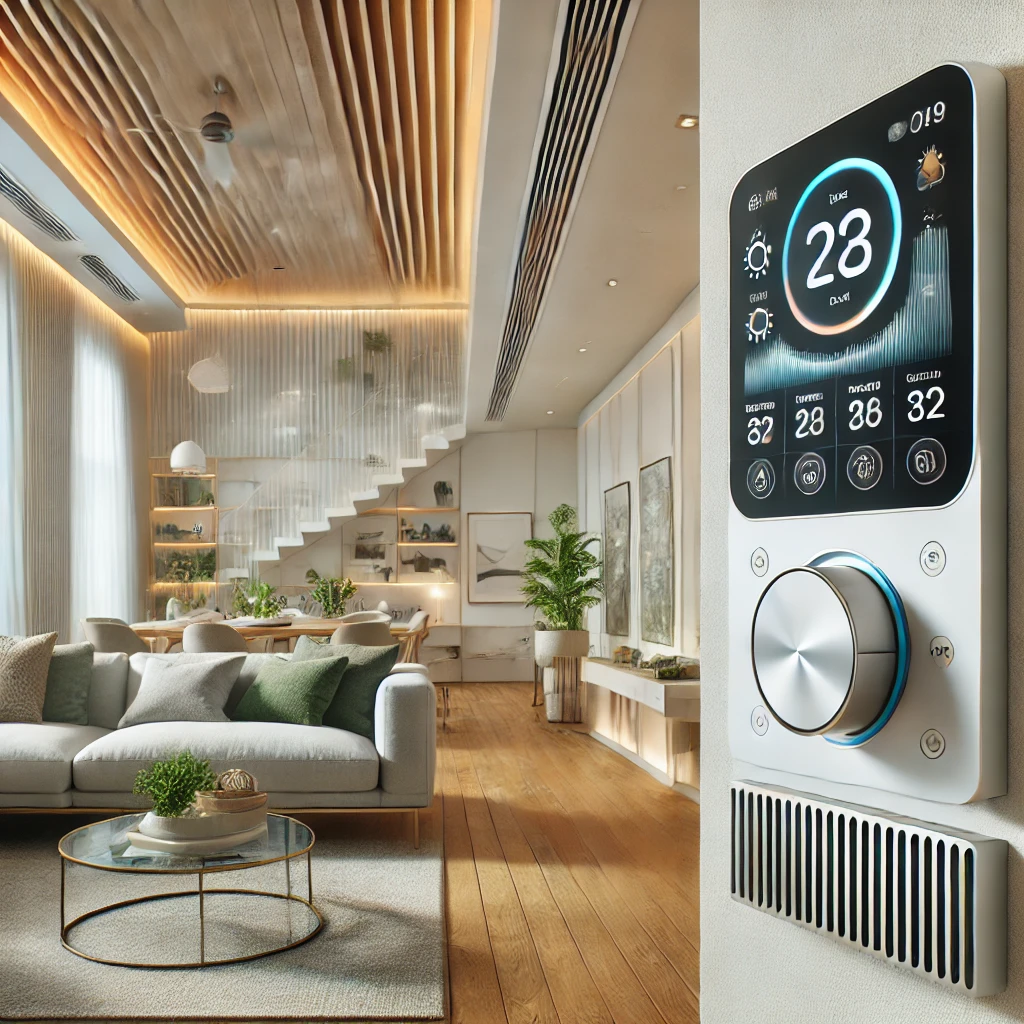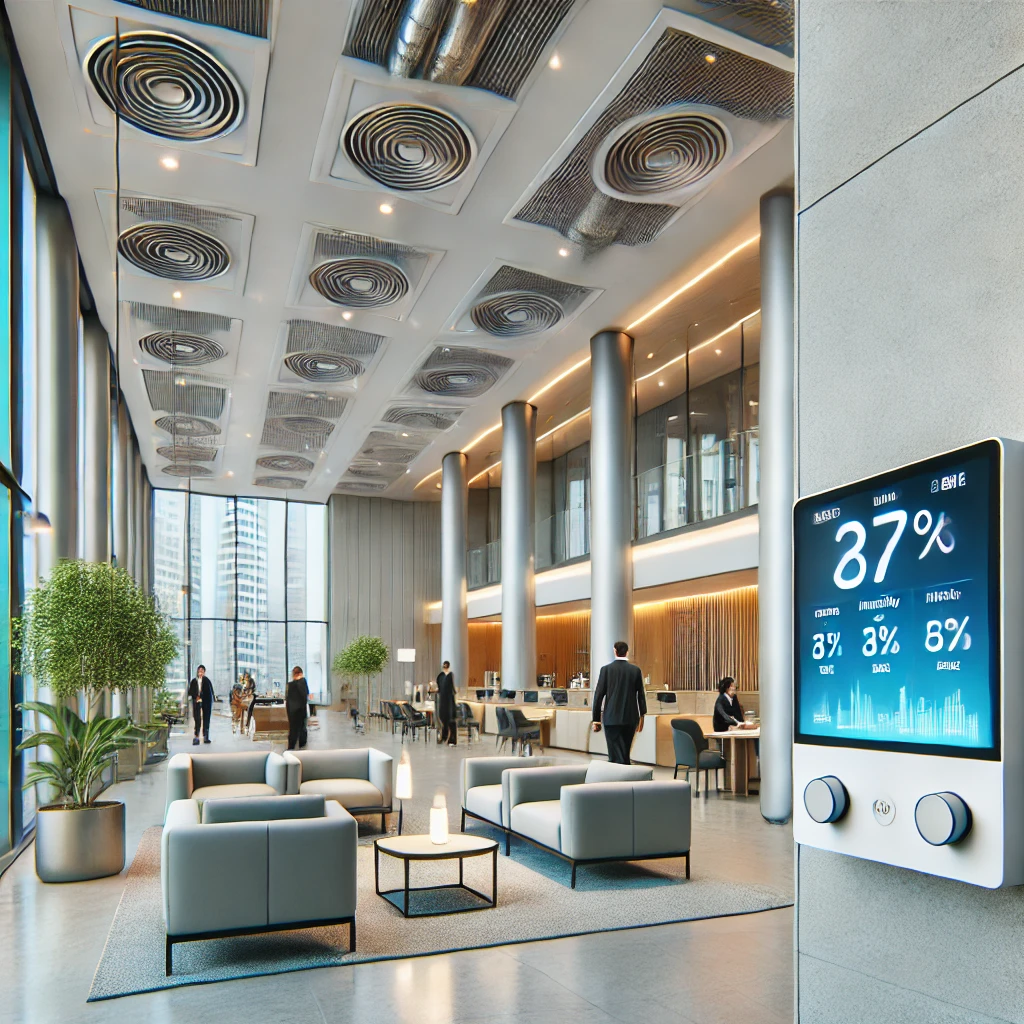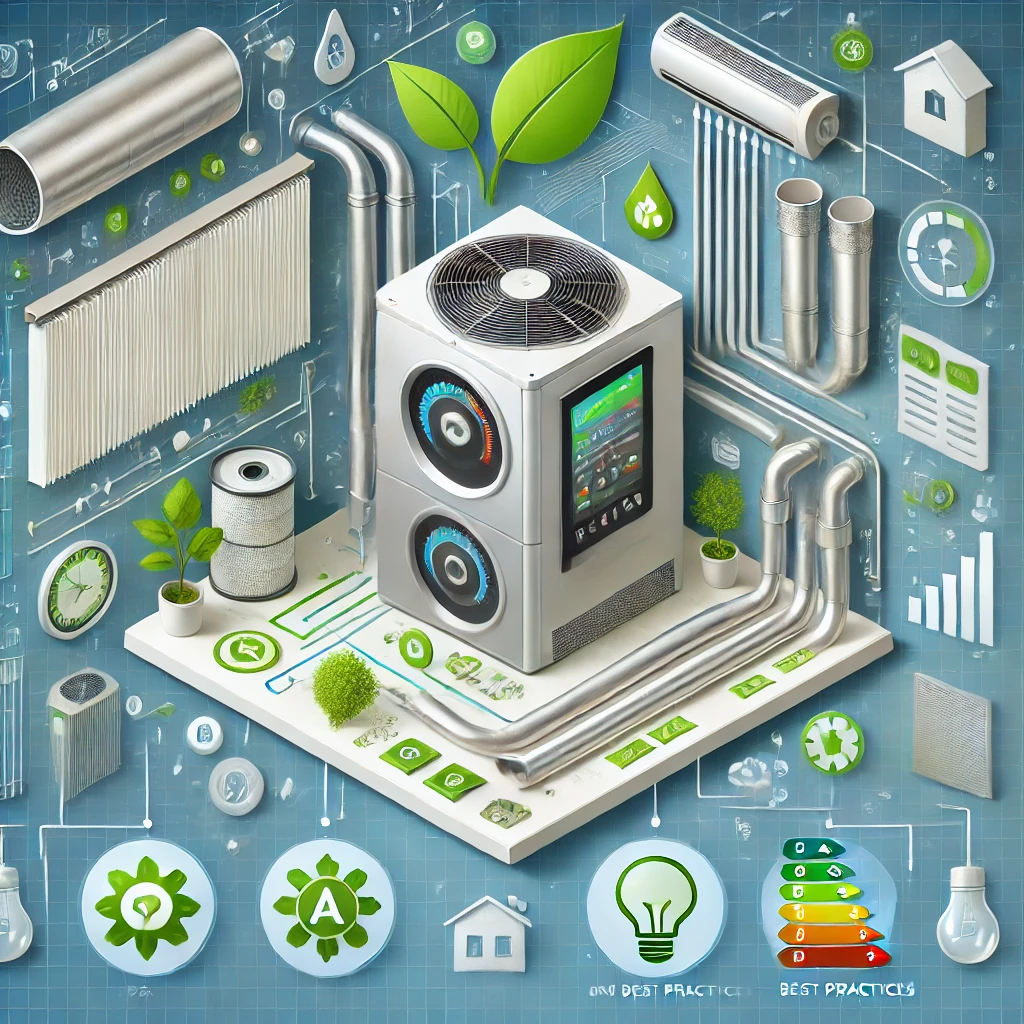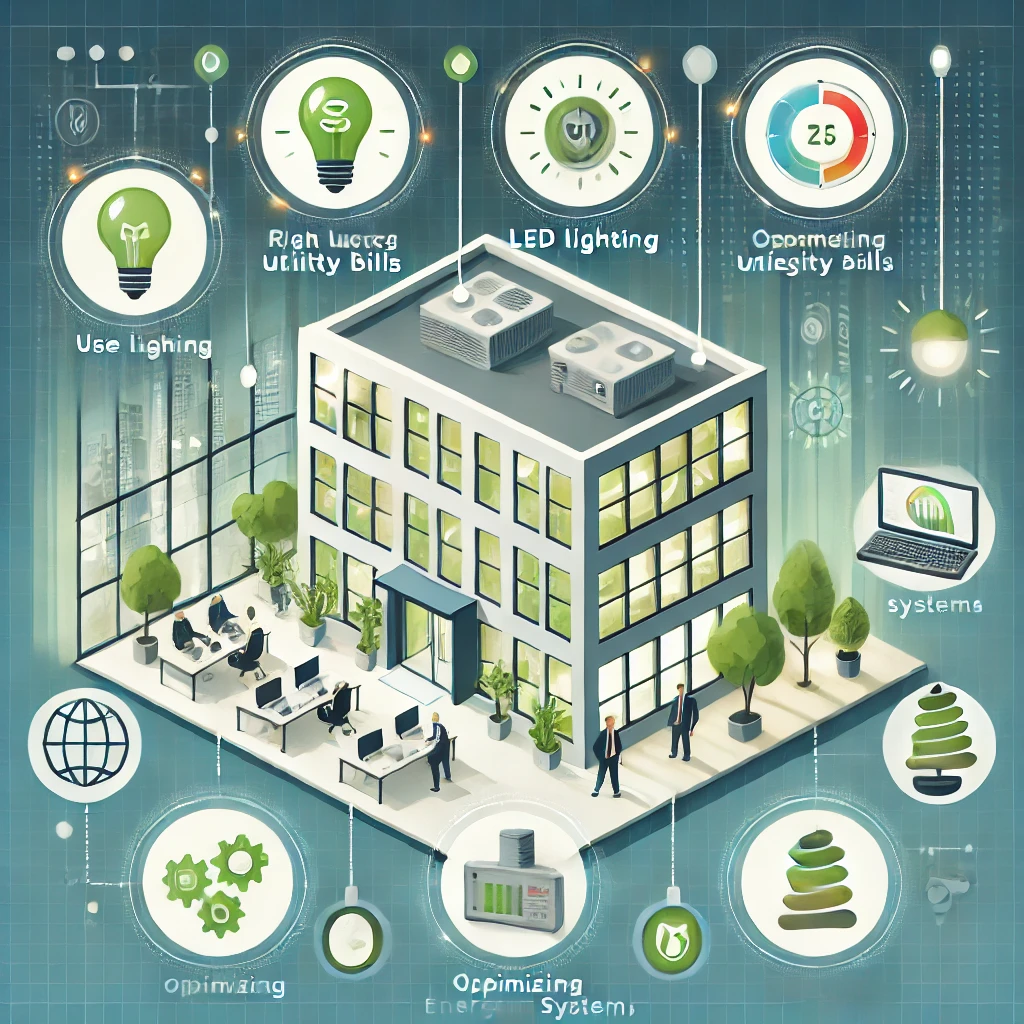How to Achieve Optimal Comfort with Modern HVAC Solutions

Heating, Ventilation, and Air Conditioning (HVAC) systems are integral to ensuring comfort in residential, commercial, and industrial spaces. With modern innovations and an increased focus on energy efficiency and sustainability, today’s HVAC solutions offer more control and optimization than ever before. Whether you're upgrading an existing system or installing a new one, here are key strategies to achieve optimal comfort using modern HVAC solutions
Use of Smart Thermostats for Precise Control
Smart thermostats are one of the simplest ways to boost HVAC performance and comfort. These devices allow for precise temperature control based on your preferences and even learning your habits over time to automatically adjust settings. You can remotely manage the temperature from your smartphone, which ensures comfort before you even walk through the door.
Benefits:
- Automated scheduling for optimal temperatures during specific times of the day.
- Remote access to control settings via smartphone or tablet.
- Integration with home automation systems for seamless control of multiple functions.
Zoned HVAC Systems for Custom Comfort
Zoned HVAC systems divide your home or building into different zones, each of which can be controlled separately. This solution is ideal for spaces with varying heating or cooling needs. For example, an upstairs room might receive more sun and need additional cooling, while a basement might require more heat.
Advantages:
- Customized temperature control for individual rooms or areas.
- Reduced energy consumption by only heating or cooling occupied areas.
- Greater comfort by addressing the specific needs of different spaces.
High-Efficiency HVAC Systems for Better Performance
Modern high-efficiency HVAC systems, such as those with variable-speed compressors and motors, adjust their operation based on the current heating or cooling demand. Unlike traditional systems that operate at full capacity all the time, these units can operate at different speeds, providing just the right amount of cooling or heating.
Key Features:
- Variable-speed technology reduces temperature swings, keeping the environment consistently comfortable.
- Energy-efficient systems help lower utility bills while providing better performance.
- Improved indoor air quality by maintaining more consistent airflow.
Incorporating Air Purification for Enhanced Comfort
Comfort isn’t just about temperature; indoor air quality (IAQ) plays a significant role in the overall experience. Modern HVAC solutions can integrate air purification systems, such as HEPA filters, UV lights, and ionizers, to remove airborne pollutants, allergens, and viruses.
Benefits of Integrated Air Purification:
- Removes dust, pollen, and other allergens from the air, improving respiratory comfort.
- Reduces harmful airborne particles, including bacteria and viruses.
- Enhances overall indoor air quality, promoting a healthier living or working environment.
Humidity Control for Optimal Comfort
Maintaining proper humidity levels is crucial for comfort. Too much humidity can make a space feel muggy, while too little humidity can lead to dry skin, respiratory issues, and static electricity. Modern HVAC systems often include built-in humidity control, which ensures that the humidity level is optimized for comfort.
Importance of Humidity Control:
- Prevents mold growth by maintaining optimal humidity levels.
- Reduces discomfort caused by excessive dryness in winter or high humidity in summer.
- Increases energy efficiency by improving the system’s ability to heat or cool effectively.

Geothermal Heating and Cooling for Sustainable Comfort
Geothermal HVAC systems are an eco-friendly solution that harnesses the consistent temperatures found underground to heat and cool buildings. By using the earth as a heat sink in the summer and a heat source in the winter, geothermal systems provide year-round comfort while significantly reducing energy usage.
Key Advantages:
- Consistent temperatures for reliable comfort throughout the year.
- Reduced reliance on fossil fuels, contributing to lower energy bills and a smaller carbon footprint.
- Quiet operation and long lifespan compared to traditional HVAC systems
Ductless Mini-Split Systems for Targeted Comfort
Ductless mini-split systems offer flexibility and efficiency, especially for homes without existing ductwork or for rooms with specific comfort needs. These systems allow you to control the temperature in individual rooms without the need for large-scale installations.
Benefits:
- Easy installation without the need for ductwork.
- Zoned comfort with individual control over each unit.
- Energy-efficient, as they only heat or cool specific areas as needed.
Regular Maintenance for Consistent Comfort
Even the most advanced HVAC systems need regular maintenance to function at their best. Keeping your system clean, changing filters, and scheduling professional inspections ensure that your HVAC unit continues to provide optimal comfort without unnecessary breakdowns.
Maintenance Checklist:
- Replace filters every 1-3 months to maintain airflow and air quality.
- Schedule bi-annual HVAC check-ups to inspect and tune up systems.
- Clean ducts and vents to prevent blockages and ensure efficient airflow.
Programmable Timers and Sensors
Many modern HVAC systems come with programmable timers and occupancy sensors. These sensors detect whether a room is occupied and adjust the temperature accordingly, maximizing comfort while minimizing energy consumption.
Advantages:
- Energy-saving by automatically adjusting temperatures when rooms are unoccupied.
- Consistent comfort as sensors respond to real-time room conditions.
- Programmable settings allow you to control temperatures based on your schedule.
Integration with Renewable Energy Sources
As sustainability becomes more important, integrating your HVAC system with renewable energy sources, like solar panels, can offer both environmental and economic benefits. Modern HVAC systems can work in conjunction with solar power to reduce reliance on the grid while maintaining optimal indoor comfort.
Key Considerations:
- Solar-powered HVAC systems can drastically reduce energy bills.
- Provides a sustainable, eco-friendly way to heat and cool spaces.
- Reduces the carbon footprint by utilizing renewable energy sources.
Conclusion
Achieving optimal comfort with modern HVAC solutions requires more than just a basic heating or cooling system. With smart technology, efficient designs, and advanced controls, today’s HVAC systems offer unprecedented levels of customization, energy savings, and air quality improvement. Whether you’re investing in a new system or upgrading your current one, these solutions ensure a comfortable, efficient, and healthy environment for years to come.
Category:



